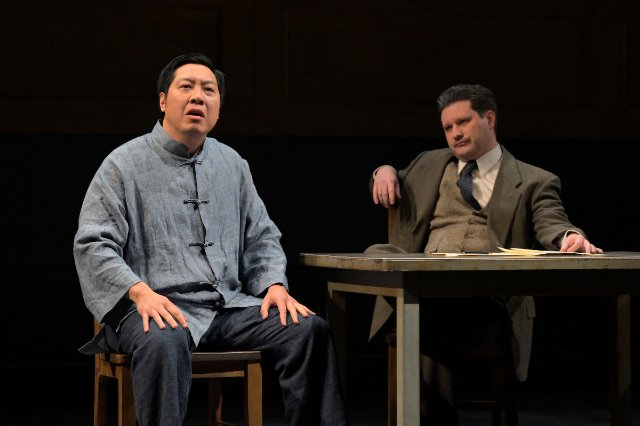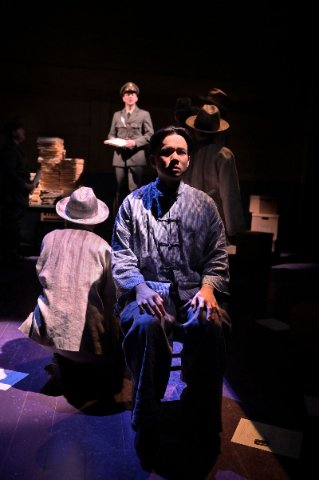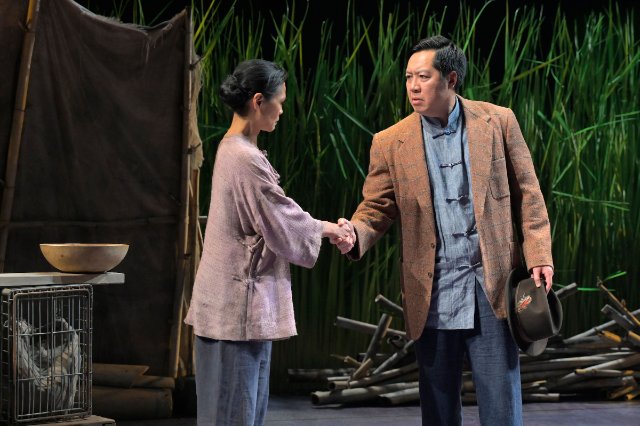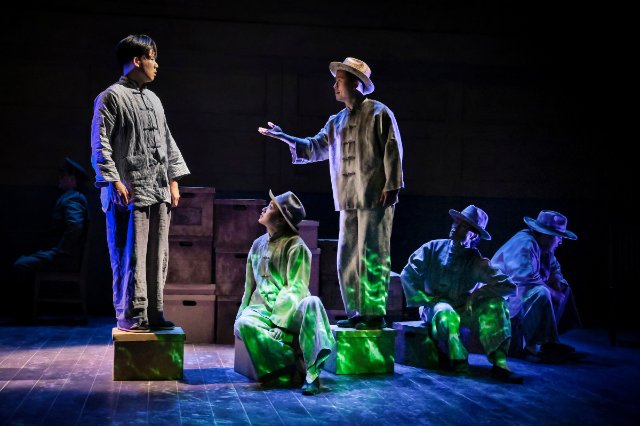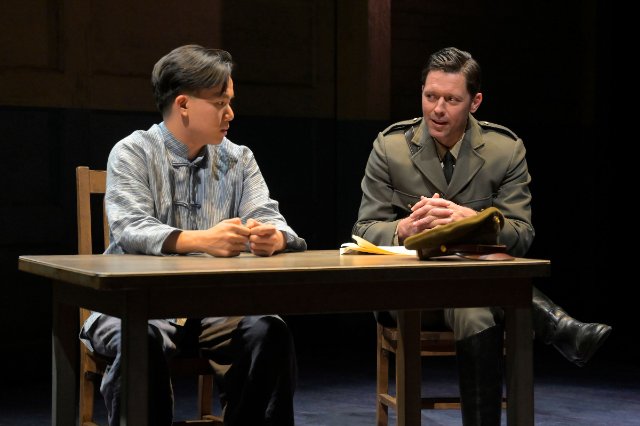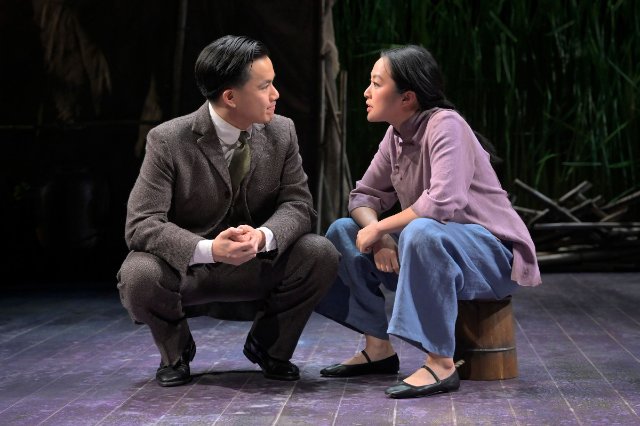The Far Country
Berkeley Rep's Fine Version of a Drama Set in Nearby Environs
By: Victor Cordell - Mar 15, 2024
From 1886, the Statue of Liberty in New York Harbor has stood as a beacon for immigration to the United States with its welcoming inscription from poet Emma Lazarus, “Give me your tired, your poor, your huddled masses yearning to breathe free.” Warmly admired by most Americans, its neighbor, the storied Ellis Island served as an efficient processing station for millions of European immigrants, unrestricted from entry until World War I.
Apart from the Asian-American community, many Bay Area residents, and some others along the West Coast, relatively few people are aware of Ellis Island’s counterpart, Angel Island in the San Francisco Bay. From 1890, it served to reject applicants from Asia rather than welcome them, especially through enforcement of the Chinese Exclusion Act of 1882 and its successors. Unambiguously racist, these laws prohibited immigration of any Chinese person except for those who could successfully claim that they were spouses or progeny of American citizens. Ellis Island processed the incoming briskly, but detention at Angel Island lasted days, sometimes months, and up to two years.
While playwright Lloyd Suh’s “The Far Country” is fiction, its gripping depiction of history, incidents, and characters might well be considered a stellar exemplar for events of its time, which spans from 1909 to 1930. The play engages from opening curtain, thoroughly engrossing as it invades the sympathetic sensibilities of the audience.
In scene one, Fyodor Chin offers a magnetic tour de force performance that sets the stage for the whole play. As Gee, a Chinese man resident in San Francisco, he wishes to travel to China, purportedly to bring his son to the United States. He lacks proof of his right to be in the United States, and all of the immigration and naturalization records generated at Angel Island were destroyed by the 1906 San Francisco earthquake. The restrictions of the Exclusion Act compounded by the loss of records spawned a massive cottage industry, with Chinese like Gee concocting elaborate origin stories in hopes of gaining permanence in “Gold Mountain,” as the U.S. was known in China.
Interrogators at Angel Island used devious methods to try to expose elaborate hoaxes by seeking fine detail like how many steps at the front door of an applicant’s house in China, and what material, what color, and what texture they possess. They often repeated questions at a later time and sought corroboration from others who should have had the same answers, even if it’s information most people would not know to begin with.
Gee’s interrogators appear heartless and clearly inclined to reject his application, as the extent of fraudulent misrepresentation they confront from men like him is profound. As Gee, Chin deals with these challenges unflappably. Ebullient, constantly smiling, and flailing his arms, the interrogators fail to pierce his practiced confidence.
The central thread of the narrative is Gee’s wanting to recruit a teen in China who can act as his fictitious son and who will pay to become indentured to Gee and his laundry business in San Francisco’s Chinatown. That target is Moon Gyet, played by Tommy Bo, who must also memorize a script compatible with the stories of his presumptive father.
Along the way, Moon Gyet will also confront a prospective wife of convenience, Yuen, who is played playfully, sassily, inquisitively, and assertively by Sharon Shao. Led by Yuen’s constant badgering about what kind of relationship they would have (sex included?), the two find tremendous humor in their simple exchanges, producing one of the several effective and unexpected tone shifts in the drama. In other scenes with changes in dramatic tension, Gee will reveal two personality transformations that not only enrich Chin’s characterization, but add to the kudos his acting deserves.
One of Moon Gyet’s revelations is that Chinese immigrants never see the Gold Mountain that they dream of but that he believes exists. He speaks of the crowding, the loneliness, the bad food, and the implied caging of the Chinese in their ghetto because of the prejudices of white society. So why do they come? Part of the stereotyping of Chinese is that they are patient, sacrificing, and forward looking. In this case, the adventuresome believe that theirs is the first step in a long march that will eventually benefit their descendants.
“The Far Country” unfortunately rings true in many ways. And in fairness, it is not just the white Americans whose integrity is impugned but also the Chinese. Ultimately, however, the optimism for a better world does come through.
The story compels, and the striking artistic elements directed by Jennifer Chang enhance its telling in many ways. Notwithstanding the play’s assets, the closure does contain an excess of earnestness. There are other weaknesses like the excessive exposition about the conditions of detention. Even that is presented in an artistic manner with dim lighting and constant movement of anonymous characters who describe the strictures.
An annoyance is that translators’ commentary overlaps the principal speakers to make dialogue harder to hear. Supertitles could be employed, or translators could use indistinct low mumbling when the main characters are speaking so that the audience understands the process without disrupting the primary conversation. Despite any minor criticisms, the play offers a powerful and memorable experience that is recommended for all theater audiences.
“The Far Country,” written by Lloyd Suh, is produced by Berkeley Repertory Theatre and plays on its stage at 2025 Addison Street, Berkeley, CA through April 14, 2024.

